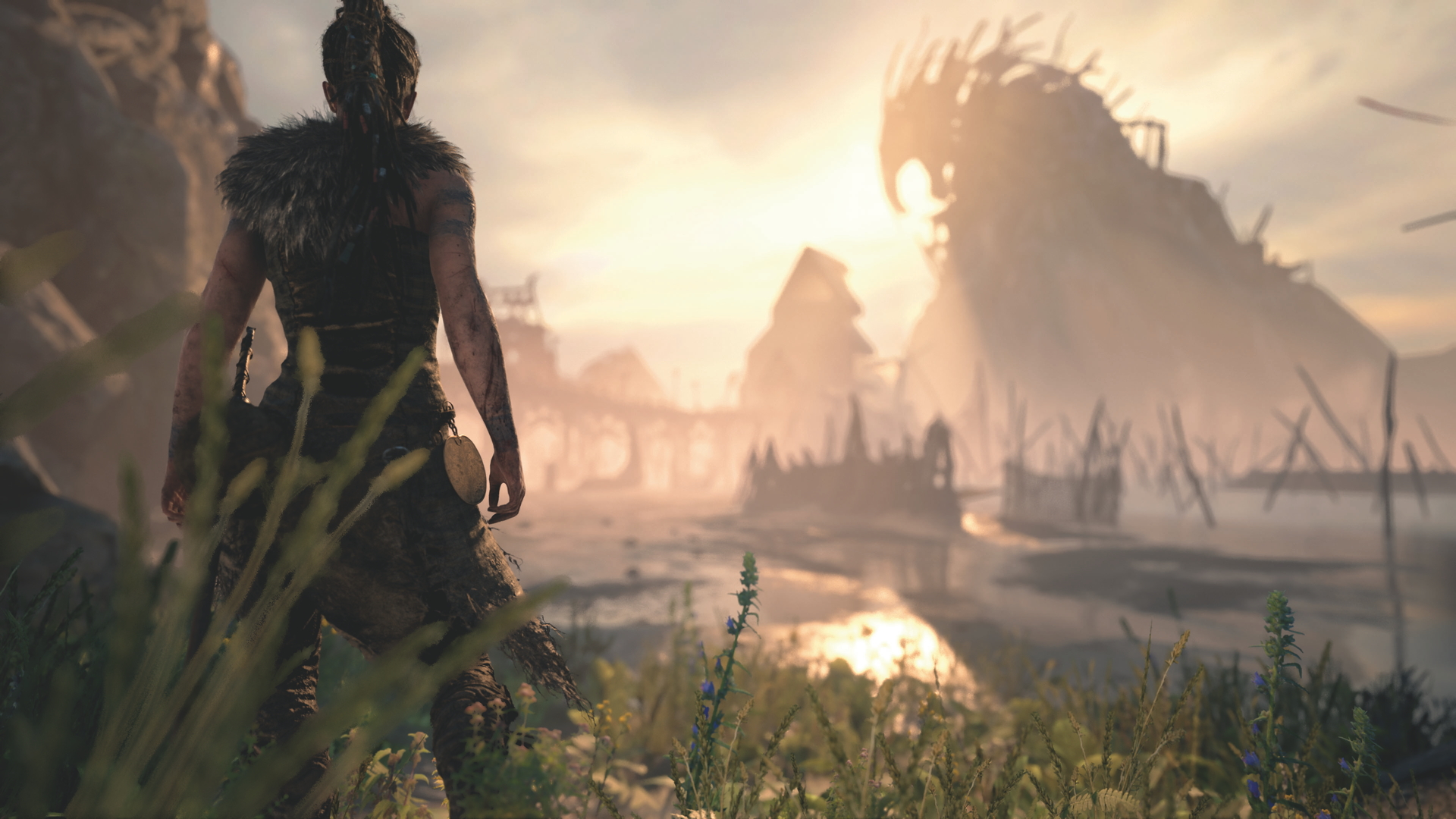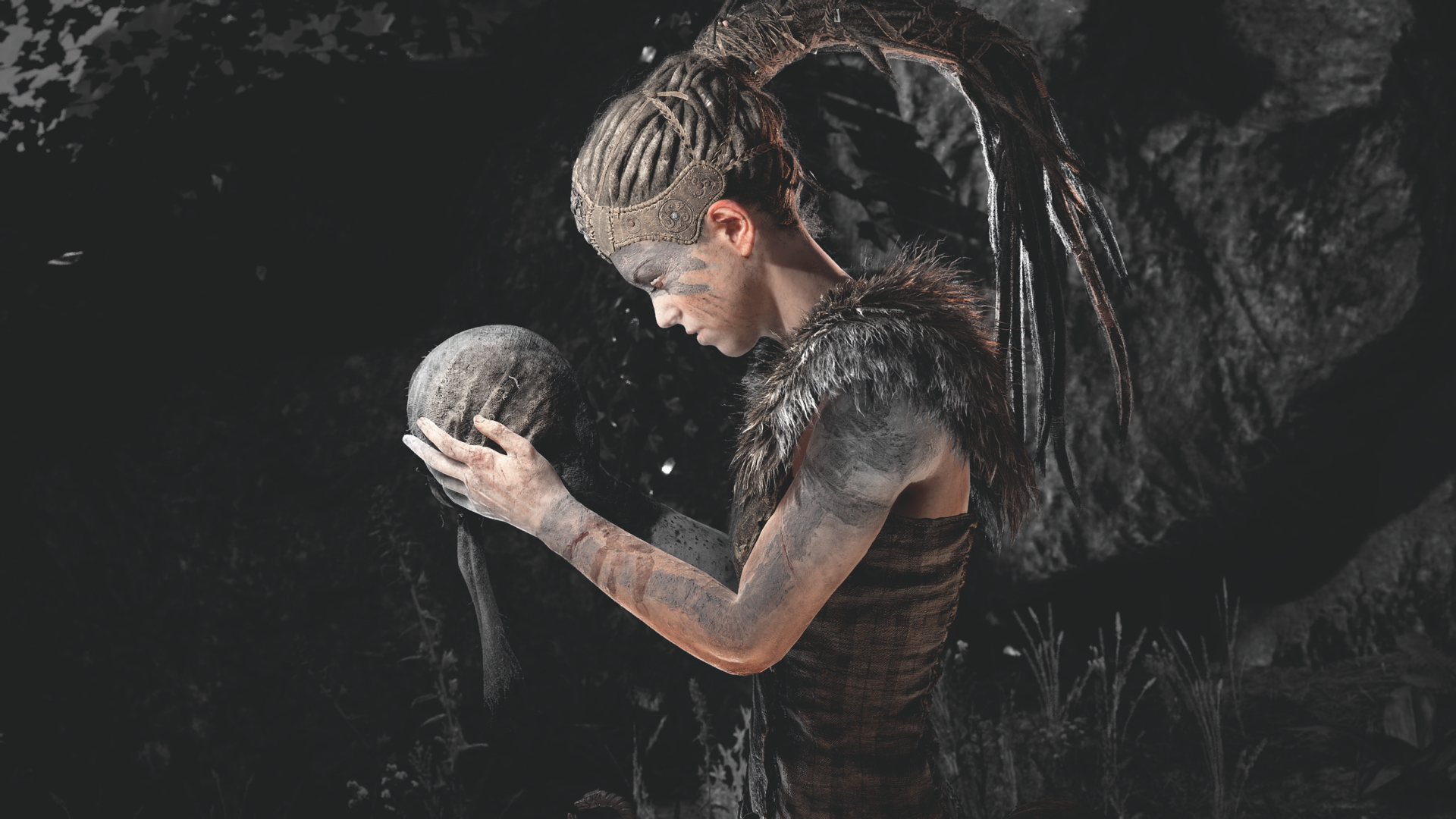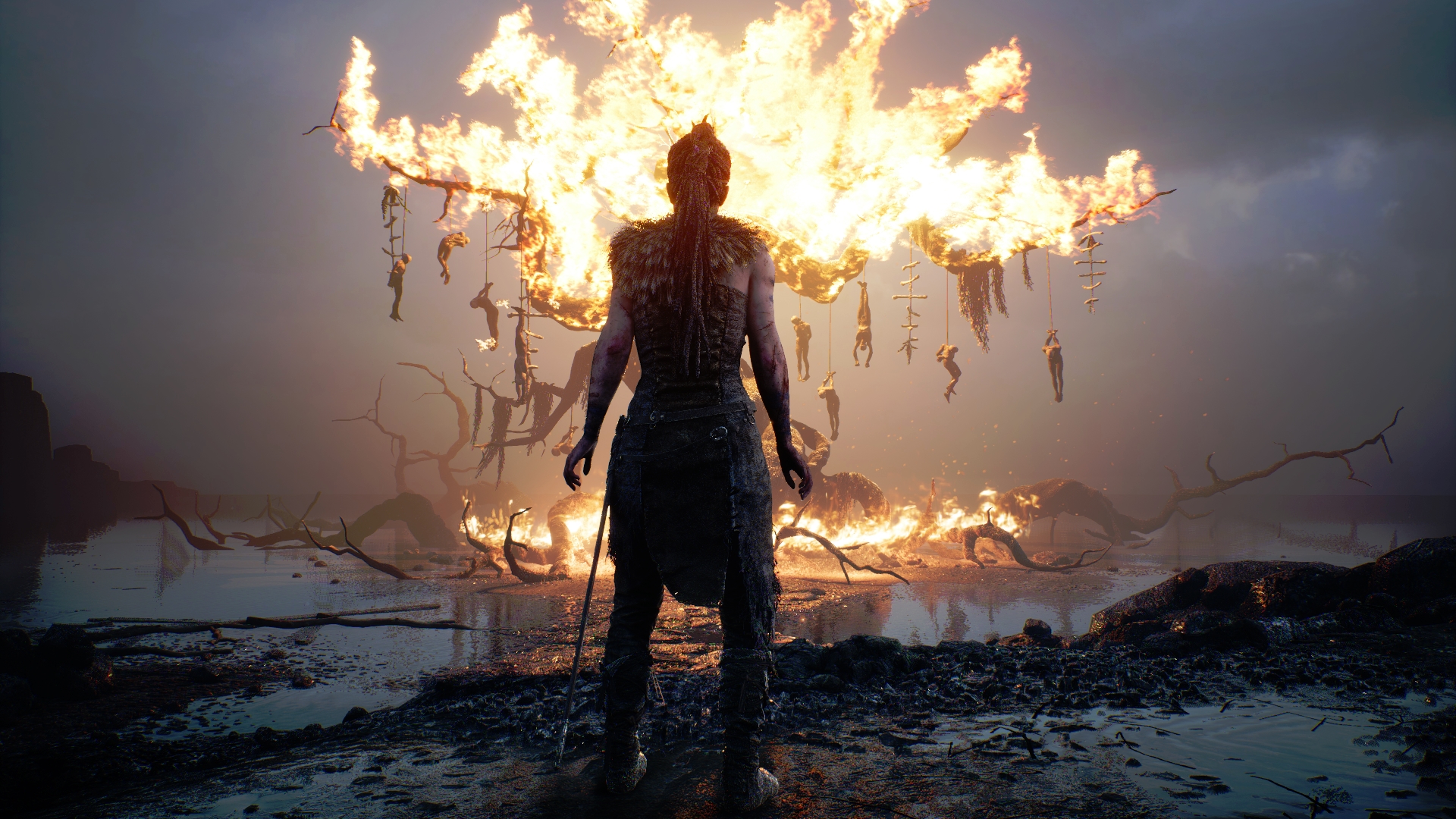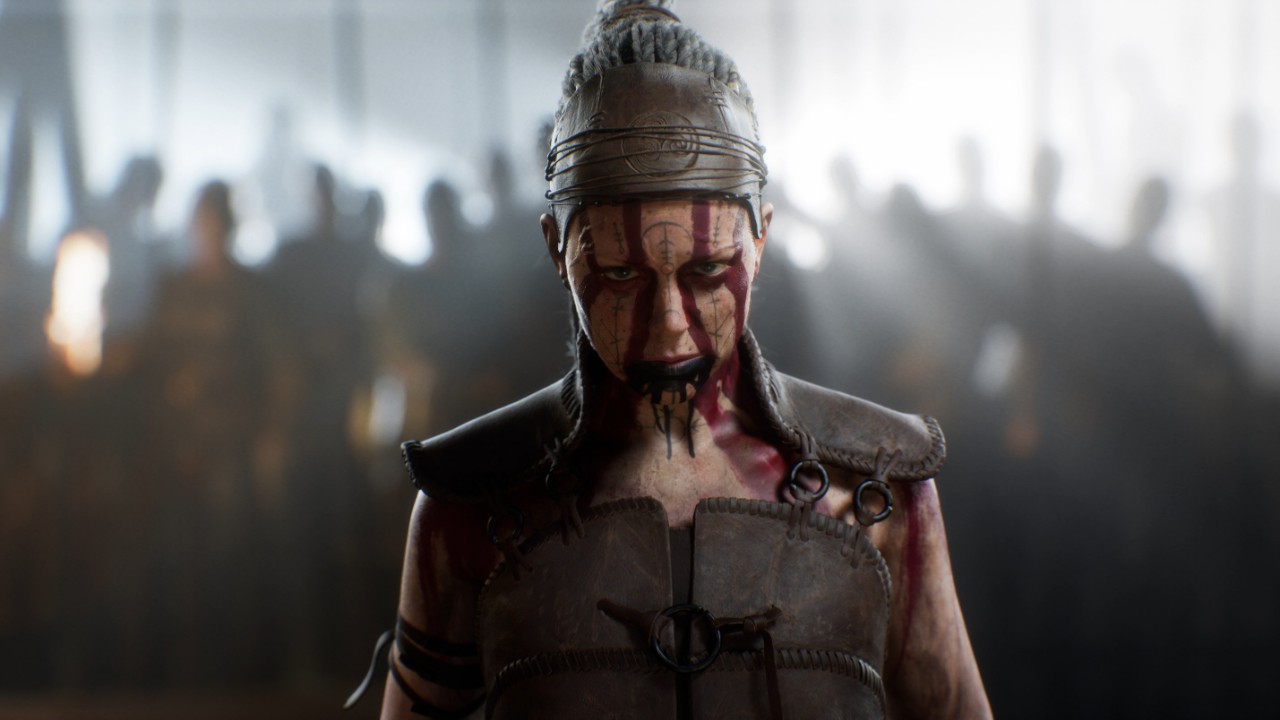Replaying Hellblade right before Hellblade 2 makes it feel more like a prequel, and I can't wait for Senua's Sacrifice to become Senua's Saga
Now Playing | Hellblade is as harrowing as ever, but perhaps it was always waiting for its sequel

There is something about Hellblade: Senua's Sacrifice that makes my enjoyment of it sit strangely. It's not the kind of feel-good afternoon fodder you play to unwind over a lazy weekend, nor does it let you live out a dynamic power fantasy as in many of the best action games. It's not even what I would call a fun game most of the time; in fact, it's quite the opposite.
The game is a sobering experience, one that guides players through the stages of grief where the pain is sharpest. As a result, my first go at Hellblade saw me frustratedly bashing my head against environmental puzzles and horned monsters out of intrigue more than enjoyment, greedily welcoming the drip-fed lore of Senua's torched world and shattered psyche with parched lips as my heart broke along with hers. But with Senua's Saga: Hellblade 2 launching in just a week, maybe the ending I once found more cruel than cathartic is just the beginning?
The darkness before the dawn

I'm not saying Hellblade is a happy little game, but it's no longer a trial of psychological torture as I once thought. It was hard for me to escape that feeling of full-body dread the first time around, but replaying it in 2024 with the sequel around the corner has me determined to witness Senua's original journey with a sense of precognition. To that end, Senua's Sacrifice now feels like a prelude of the Saga yet to come – and that makes this her tragic backstory.
Navigating the smoldering ruins of a Pict village, I make a concerted effort to listen closely to each of the flashbacks I unlock. Hearing the story of Senua's people and the pain they suffered is a unique kind of uncomfortable, but that's all the more important if I want to get the full picture of Senua's hamartia; her fatal flaw, one that cements her role as the tragic hero in this carnival of dark fantasy horrors. I already know that Hellblade 2 will see Senua rise up as a different kind of horror game heroine, finding self-acceptance and using her perceived weakness as a great strength. However, Hellblade is about more than fighting monsters.
The first game is a long and painful excavation of mental illness, grief, and survivor's guilt, but it also shows the best and worst of Senua's psyche: she's headstrong and driven, but also overcome by rage, sadness, and the aching thirst for vengeance. This thirst will follow Senua into Hellblade 2, but in Hellblade 1, it's marred by her overwhelming feelings of self-loathing and shame. Listen to how the voices in her head – the Furies, they're called, as if from Greek mythology – talk to her in Hellblade 1, and it's clear that Senua is as afraid of them as they are for her. She rejects them because she has been taught to do so, but it's only with their help that she's able to complete her journey to Helheim.

The very existence of Hellblade 2 proves that maybe Senua isn't a tragic figure, but an empowered one.
I turn all of these thoughts over in my mind as I make my way through the game, all the twisting pathways starting to look the same as I end up right back where I started over and over again. I die once or twice, watching the black rot on Senua's arm start to spread, and remember how we all thought that should the rot reach her heart as per the warning given at the start of the game, your entire save would be wiped. That, much like Senua's own feelings of ominous incoming dread, are nothing more than a trick of the mind made to up the ante.
But catastrophizing death in a video game like this makes every action an urgent one, whether that be a poorly-timed dodge roll or skirting a little too close to the fire, and I feel a symbiotic desperation with Senua starting to build. I know how things end, and I know that neither of us is at any real risk, but Hellblade 1 makes you forget that. The game implicates the player in Senua's struggles so deeply that the dramatic finale hits home even harder, and all that's left to do is weep.
Sign up to the GamesRadar+ Newsletter
Weekly digests, tales from the communities you love, and more
Painting Senua as a tragic hero means you'd expect her to die at the end, finally falling prey to that fatal flaw of self-hatred. That's certainly how things feel at the end of Hellblade 1 at face value. But the very existence of Hellblade 2 proves that maybe Senua isn't a tragic figure, but an empowered one. She has beaten her own odds (at least for now) by transforming flaw into advantage, getting out of her own way so that she can attend to a broader purpose. Of course I still want Senua to exact vengeance for her family, as we know she sets out to do in Hellblade 2, but I'd love her to seek vengeance against her lifelong othering in the most peaceful of ways: by finally being happy and free. More than anything, I just want her sacrifices to have been worth it – and I guess we'll find that out soon enough.
Check out some other upcoming Xbox games to watch for in 2024, from Star Wars Outlaws to Assassin's Creed Shadows

Jasmine is a staff writer at GamesRadar+. Raised in Hong Kong and having graduated with an English Literature degree from Queen Mary, University of London in 2017, her passion for entertainment writing has taken her from reviewing underground concerts to blogging about the intersection between horror movies and browser games. Having made the career jump from TV broadcast operations to video games journalism during the pandemic, she cut her teeth as a freelance writer with TheGamer, Gamezo, and Tech Radar Gaming before accepting a full-time role here at GamesRadar. Whether Jasmine is researching the latest in gaming litigation for a news piece, writing how-to guides for The Sims 4, or extolling the necessity of a Resident Evil: CODE Veronica remake, you'll probably find her listening to metalcore at the same time.



